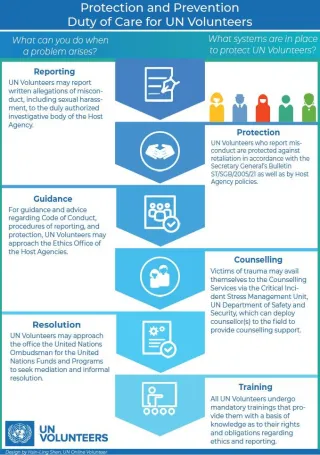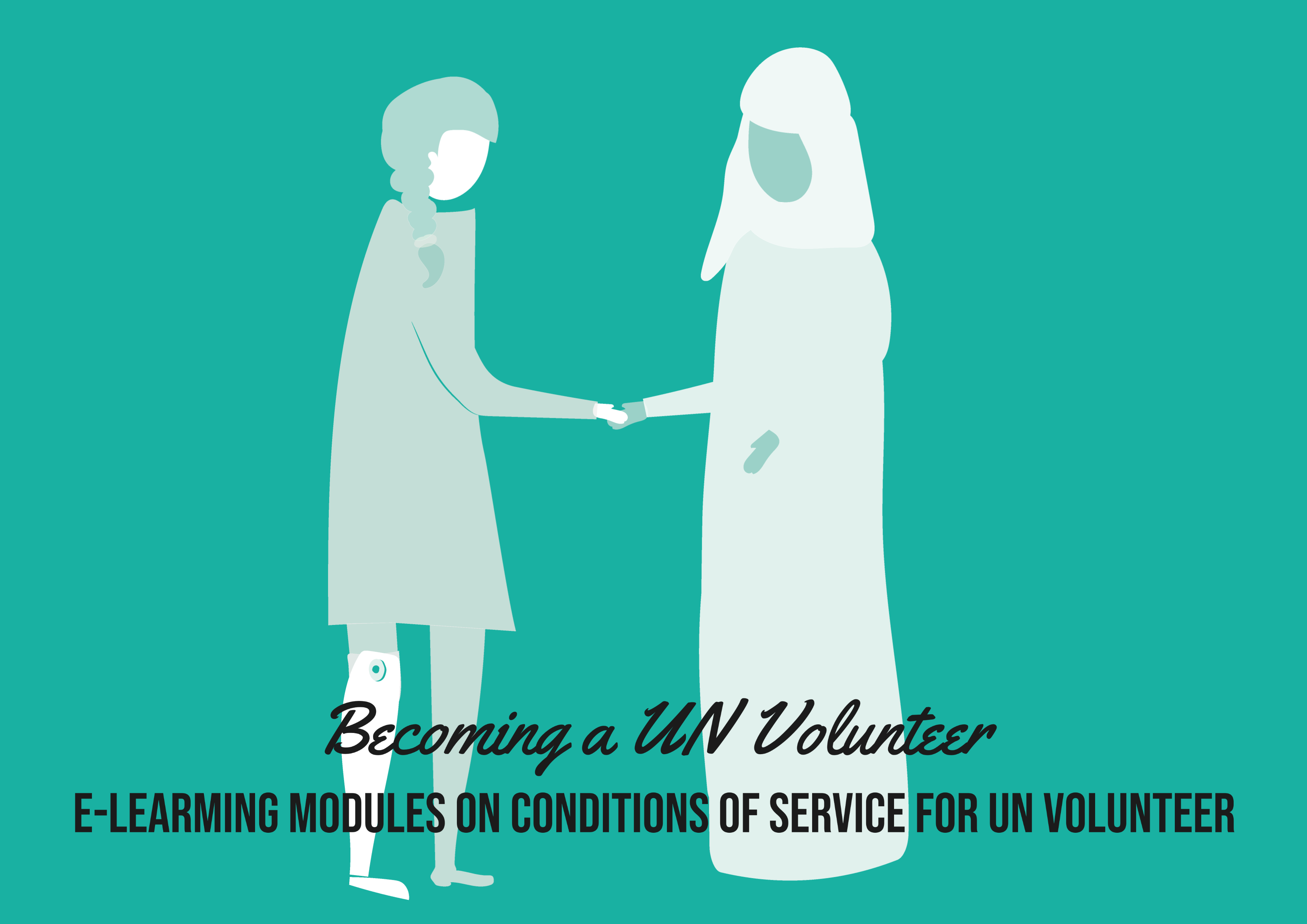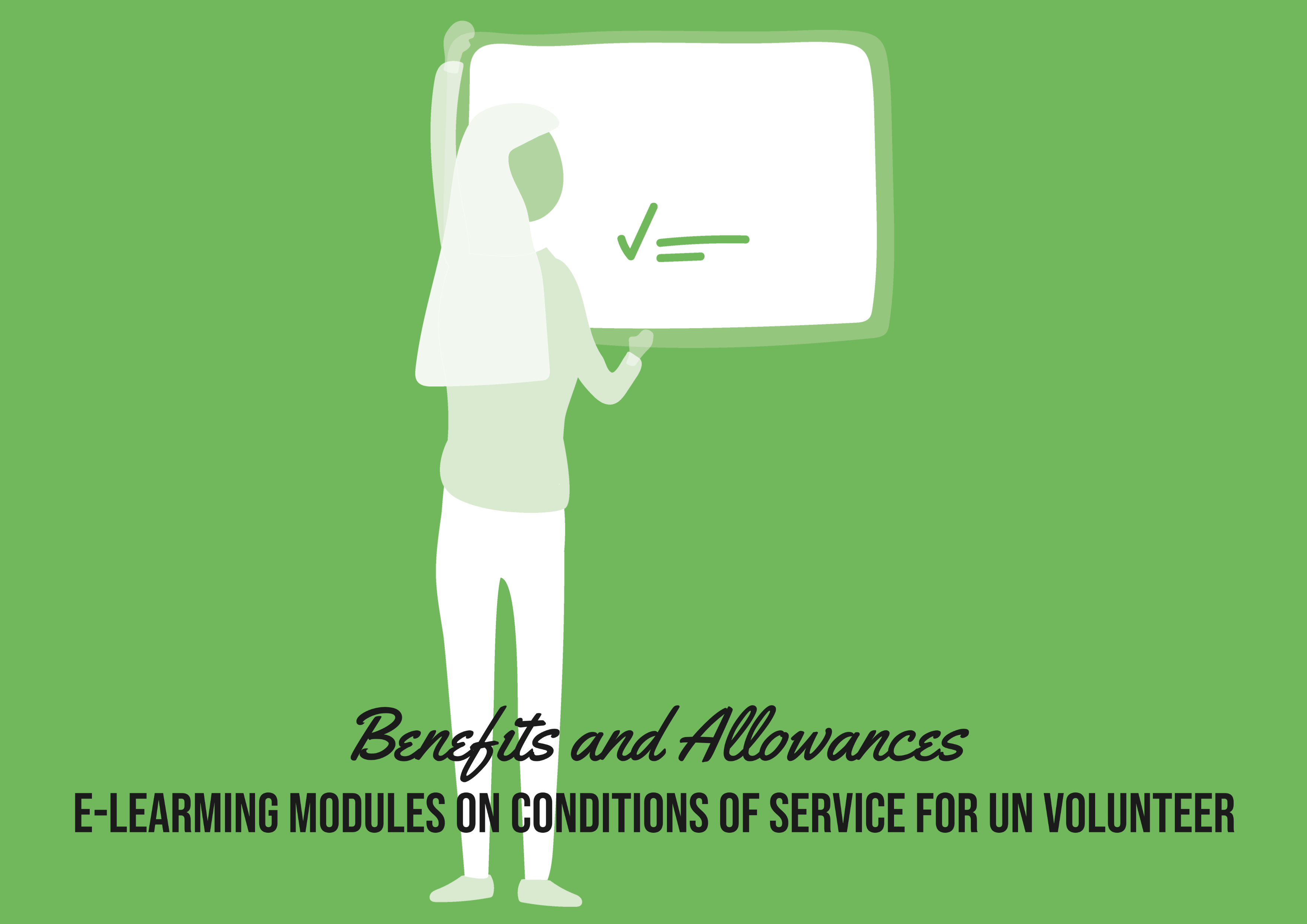While you volunteer for a better future, we have you covered from start to finish!
You bring motivation and commitment while serving as a volunteer with the United Nations, and UNV has your well-being and expenses covered. You will receive several types of benefits and allowances. These aren’t a salary or reward. They’re not compensation. Just enough to live safely and comfortably, from your first to your last day on assignment.
Head over to eCampus and complete the 2 online modules on Conditions of Service for UN Volunteers. It’s easy to find out what you’re entitled to depending on your volunteer category and duty station where you’re volunteering, as well as on your contract and family relationships status.
- First, you must first understand basics of volunteering with UNV including what is expected of you during your journey as a UN Volunteer, wherever you are, when you’re on and off duty.
- Then explore the benefits and allowances supporting you throughout your UN Volunteer assignment.
Watch these explainer videos for an overview of benefits and allowances you may receive during the assignment.
1. Benefits and Allowances at the start of assignment
2. Benefits and Allowances during assignment
3. Benefits and Allowances at the end-of-assignment
Your Safety and Security
Review the information below to understand your role and responsibilities, and the systems in place to ensure your safety and security during assignment:
Your safety and security is UNV’s highest priority so, before you travel:
1. Complete BSAFE – the online training course.
2. Register for UNDSS TRIP and use this to:
- Record all your personal and work-related travel information, while on assignment.
- Get security clearance before you travel on business or holidays.
- Keep your contact details up to date.
- Maintain your insurance and security coverage – there will be serious implications for both, if you don’t use TRIP.
- See how to register for Security Clearance.
When you arrive at your duty station:
- You’ll have a security briefing – and be told of any further security training your Host Entity has arranged for you.
- Your UN Designated Official will be in charge – you and your family (your authorised dependents) must strictly follow all instructions while on assignment, including guidelines, security plans and advice.
Security basics when you get to your duty station:
- Leave non-essential valuables at home – material possessions aren’t worth your life, so take only what you need on assignment.
- Find out about potential threats, no-go areas and who’s your security warden.
- Plan safe places and rehearse what you’d do if an aggressor confronted you – depending on the situation, you may call attention to yourself by screaming, shouting or beeping your vehicle’s horn.
- Learn local phrases so you can signal you need help, and customs for how to dress and behave on assignment.
- Check your contact information is up to date – your Host Entity, your profile in UVP, and UNV Field Unit (if applicable) must have your current mobile number and details.
Every day, please:
1. Carry a mobile phone or radio with the emergency contact numbers – so you and your family can be reached (or reach out) in case of emergency.
2. Be aware of your surroundings and on alert for anything unusual.
3. Follow the United Nations system security regulations, plans and procedures – methodically and with discipline.
Please download the Android app or the iPhone app, so you can get this relevant local security information:
- Emergency contacts – for your closest UNDSS (UN Department of Safety and Security).
- Security notifications – updates on current situations and event warnings, if your work may be affected, according to UNSMS (UN Security Management System).
- Weekly Travel Advisory – about local threats and risks that UNDSS are aware of in your area.
The ETA app also lets UNSMS know where you are and if you need help (your status) in a crisis or emergency.
To find out more about the app and why it’s highly recommended for volunteers, browse these FAQs. Or use this how-to guide for help signing in and using the ETA app.
Protection and Prevention: Duty of Care for UN Volunteers
Your safety and wellbeing is our responsibility and all forms of misconduct are taken seriously:




